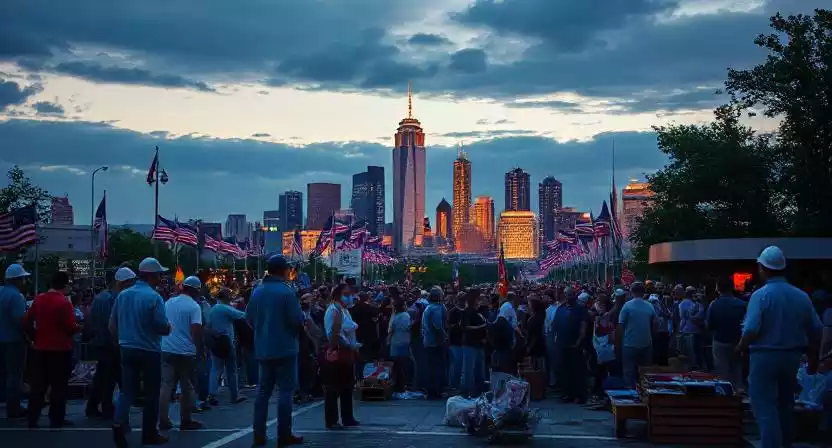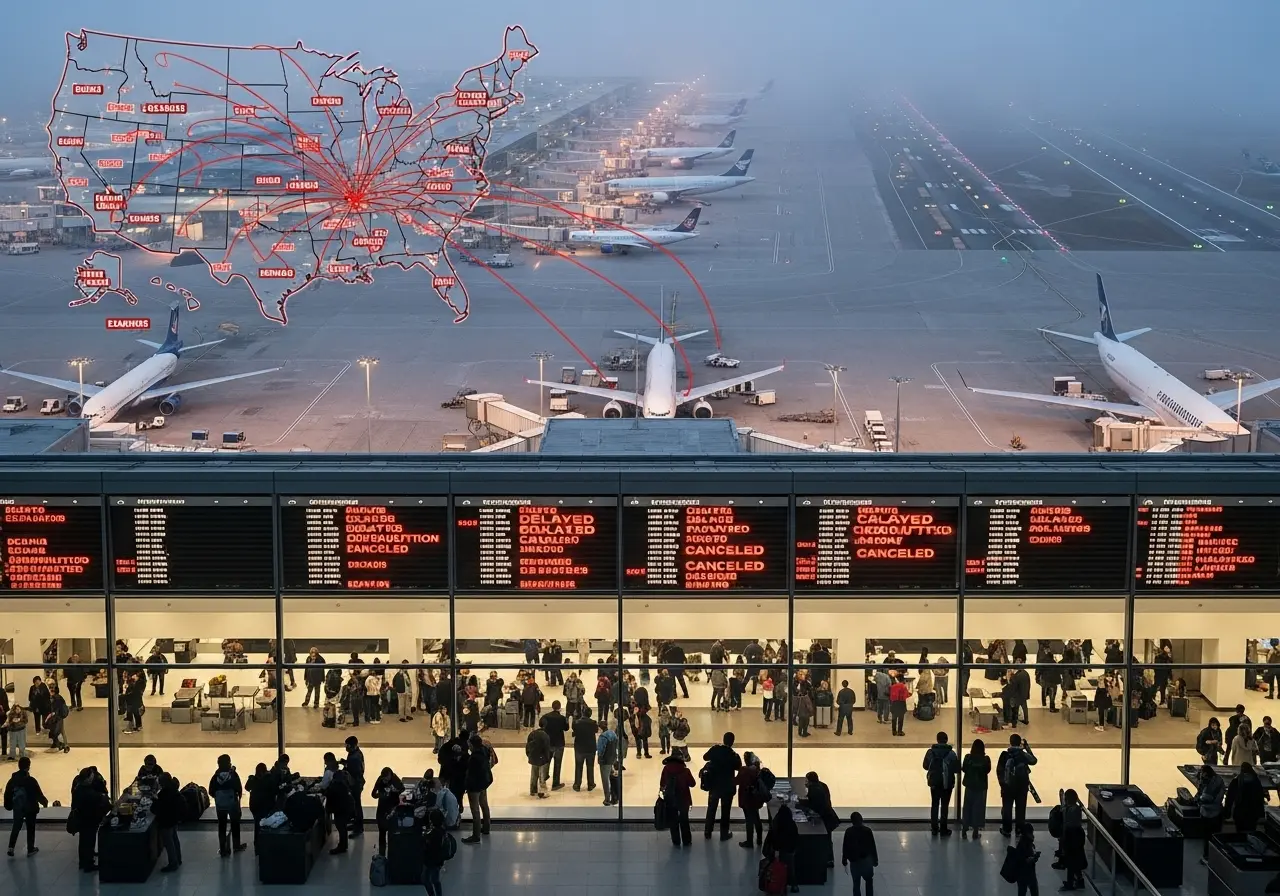Labor Day. For many, it signals the unofficial end of summer. It brings barbecues, beach trips, and retail sales. However, beneath the celebratory surface lies a profound history. This history often goes unacknowledged amidst the modern festivities. We must delve deeper. We must examine the origins and true meaning of Labor Day. We must consider if our current celebrations truly honor its intended purpose.
A Day Born From Struggle
Labor Day did not arise from a desire for an extra holiday. Instead, it emerged from decades of intense struggle. Working conditions in the late 19th century were often appalling. People toiled for long hours under dangerous circumstances. Child labor was rampant. Fair wages and basic rights were nonexistent. Workers began to organize. They formed unions to demand better treatment. These early labor movements faced fierce opposition. Strikes and protests were met with violence and suppression.
The fight for a national day recognizing workers was long and arduous. Various individuals and organizations championed this cause. Peter J. McGuire, a carpenter and general secretary of the Brotherhood of Carpenters and Joiners, is often credited with first suggesting a “general holiday for the laboring classes.” Others, like machinist Matthew Maguire, also played significant roles. The exact originator remains debated. Nevertheless, the sentiment for a dedicated day of recognition was widespread.
Honoring the Contributions of Workers
The initial vision for Labor Day was deeply rooted in acknowledging the vital contributions of working people. It was meant to be a day of civic pride. Communities would organize parades showcasing the skills and trades of local workers. Speeches would highlight the importance of labor to the nation’s prosperity. The focus was on the collective achievement of the workforce. It was a day to recognize the dignity of labor in all its forms.
Early Labor Day celebrations reflected this intent. Workers marched with their union banners. They displayed their crafts and tools. Communities came together to celebrate the fruits of their collective labor. It was a day of solidarity. It was a powerful demonstration of the working class’s importance to society. The emphasis was squarely on honoring the individuals who built and sustained the nation through their hard work.
The Shift Towards Leisure
Over time, the character of Labor Day began to evolve. The focus gradually shifted from public demonstrations of labor’s importance to a day of leisure and recreation. The establishment of a national holiday undoubtedly provided a much-needed day off for many. The association with the end of summer naturally led to outdoor activities and gatherings. Retailers began to capitalize on the long weekend with sales events.
While leisure and relaxation are important, this shift risks obscuring the original purpose of the holiday. The historical context of struggle and the intended recognition of workers’ contributions can easily be lost amidst barbecues and shopping sprees. The danger lies in reducing Labor Day to just another holiday, devoid of its deeper meaning and historical significance.
The Ongoing Relevance of Labor Issues
It is crucial to remember that the issues that led to the creation of Labor Day are not entirely relics of the past. While significant progress has been made in labor rights and working conditions, challenges persist. Issues such as wage stagnation, income inequality, precarious work, and the erosion of union power remain relevant in many parts of the world, including the United States.
The fight for fair treatment and decent working conditions continues for many. The gig economy presents new challenges to traditional labor structures. Automation and technological advancements raise questions about the future of work. Therefore, reflecting on the origins of Labor Day and the struggles of the labor movement remains highly pertinent in today’s context.
Reclaiming the True Meaning
How can we reclaim the true meaning of Labor Day? It starts with education and awareness. We can take the time to learn about the history of the labor movement. We can discuss the significance of the holiday with our families and communities. We can support organizations that advocate for workers’ rights.
Furthermore, we can consciously acknowledge the contributions of workers in our daily lives. We can appreciate the labor involved in the goods and services we consume. We can advocate for fair wages and safe working conditions for all. We can use Labor Day as an opportunity to reflect on the dignity of work and the importance of treating all workers with respect.
A Call for Reflection and Action
Labor Day should be more than just a day off. It should be a day of reflection. We should reflect on the struggles of those who came before us. We should acknowledge the ongoing challenges faced by workers today. It should also be a day of action. We can support policies and initiatives that promote fair labor practices. We can advocate for stronger worker protections. We can ensure that the sacrifices made by past generations were not in vain.
By understanding and honoring the true meaning of Labor Day, we can ensure that it remains a meaningful tribute to the working people who are the backbone of our society. We can move beyond mere celebration. We can embrace a deeper appreciation for the dignity of labor. We can recommit ourselves to the ongoing pursuit of fair and just working conditions for all. Let us not forget the true meaning. Let us honor the legacy.
The Enduring Significance of Solidarity
The labor movement’s strength has always resided in solidarity. Workers uniting for a common cause achieved significant progress. Labor Day itself is a testament to this collective power. In our increasingly individualistic society, the spirit of solidarity can sometimes feel diminished. However, the challenges facing workers today often require collective action.
Reclaiming the true meaning of Labor Day involves fostering a renewed sense of solidarity. We can support unions and worker organizations. We can advocate for policies that strengthen collective bargaining rights. We can recognize that an injury to one worker is an injury to all. By embracing solidarity, we honor the spirit of those who fought for Labor Day in the first place. We also equip ourselves to address the labor challenges of the 21st century.
Beyond the Barbecue: Meaningful Observances
While enjoying the leisure that Labor Day provides, we can also incorporate more meaningful observances. Communities can organize events that highlight local workers and their contributions. Schools can educate students about the history of the labor movement. Public figures can issue statements acknowledging the importance of labor rights.
We can also make conscious choices about how we spend the day. Supporting businesses that treat their workers fairly can be a way to honor the spirit of Labor Day. Engaging in conversations about labor issues with friends and family can raise awareness. Even a moment of silence to remember the struggles of past generations can be a powerful act of remembrance.
Labor Day in the 21st Century: A Renewed Purpose
Labor Day in the 21st century presents a unique opportunity. We can honor the past while looking towards the future of work. We can acknowledge the contributions of traditional laborers while also recognizing the evolving nature of work in the digital age. The principles of fair treatment, safe working conditions, and the right to organize remain timeless.
As technology reshapes the workplace, the need for advocacy and protection for workers may evolve but will not disappear. Labor Day can serve as a reminder of these enduring principles. It can be a day to discuss the ethical implications of automation and the gig economy. It can be a time to envision a future of work that is both productive and just for all.
Disclaimer: This blog post aims to provide an informational perspective on the historical and potential contemporary meaning of Labor Day. The interpretations and suggestions presented are intended to encourage reflection and awareness and may not represent a definitive historical or sociological analysis. Individual perspectives on the significance and observance of Labor Day may vary.



